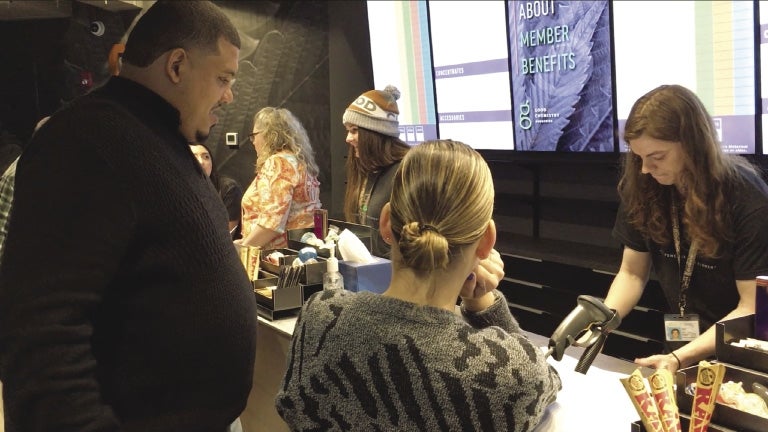Marijuana businesses are already prohibited near schools and hopeful cannabis entrepreneurs turned out on Tuesday to oppose bills that would add houses of worship, daycares and places where children might congregate to the list of places marijuana companies must stay away from.
State law bans marijuana establishments from being “located within 500 feet of a pre-existing public or private school providing education in kindergarten or any of grades 1 through 12.” Bills (H 3527 filed by Rep. Hannah Kane and S 1122 filed by Sen. Joseph Boncore at the request of a constituent) would add to that list any “daycare center, or any facility in which children commonly congregate,” and “church, synagogue temple, or place of worship.”
Chauncy Spencer, a Boston resident who is working to open a marijuana retail store in the city, told the Committee on Cannabis Policy that the bills would severely limit where his company could operate.
“What that does is create, effectively, a ban in our city. There are over 100 churches, just churches alone, in the city of Boston and probably more daycares,” he said. Spencer added that the bills would disproportionately harm minority business owners. “I would hope that we would be careful about implementing such bans because we were supposed to include people from these areas in the industry and not lock them out.”
Devonta Davis and Cleon Byron, co-owners of a marijuana company that is trying to establish itself in Boston, said there are 10 churches and six daycare centers within three blocks of their location along Blue Hill Avenue. They said they have been transparent with those groups about their business plan.
“We’ve talked to the community, we’re part of the community,” Davis said. “We’ve been in contact with the churches, we’ve been in contact with the daycares and they seem to be on our side. So I don’t understand where these bills are coming from.”
Davis and Byron each said that they want to be part of the diversity of the cannabis industry, but feel that there’s always something holding back people of color from fully participating in the newly legal industry.
“The economic impacts of these bills are just as harmful as the War on Drugs, which was proven to target minority communities, and I see these bills as targeting minority businesses,” Davis said. “We have been told that throughout this entire process that social equity is a top priority in Massachusetts, yet at every turn there seems to be an attack on the economic capabilities of minority communities and businesses.”
Equity is a central component of the marijuana law passed by voters in 2016 and the law as rewritten by the Legislature the following year. The law mandates that the Cannabis Control Commission adopt “procedures and policies to promote and encourage full participation in the regulated marijuana industry by people from communities that have previously been disproportionately harmed by marijuana prohibition and enforcement and to positively impact those communities.”
John Scheft, an attorney appointed by Attorney General Maura Healey to serve on the state’s special commission related to drugged driving, said he supports the more restrictive zoning for marijuana companies.
“One of the drumbeats that this committee has heard from people who support the commercial system for cannabis is, ‘let’s just treat it like alcohol.’ We really should do that,” he said, referencing a state law that requires liquor stores and restaurants serving alcohol to notify churches and schools within 500 feet and allow them a chance to object before the business is allowed to open. “It seems that we should certainly do that for marijuana establishments.”
Scheft, who represented the Massachusetts Prevention Alliance in its opposition to the 2012 ballot question authorizing medical marijuana, added, “We’re just looking for parity in treatment.” Later, when pressed by Chairwoman Sonia Chang-Diaz, Scheft said he favors an outright ban, rather than requiring notice, for marijuana companies.
Kane’s bill is co-sponsored by six of her colleagues from the House Republican caucus. Boncore’s by-request bill was not co-sponsored by any legislators.
Cannabis Control Commission member Shaleen Title testified in opposition to the bills on Tuesday, citing guidance the CCC has issued to municipalities highlighting real estate as “one of the primary hurdles for small businesses and businesses owned by people from marginalized communities” when seeking to obtain a marijuana license and open a business.
“My opinion is that adding restrictions that are more difficult to define, including places of worship and facilities where children congregate, would slow down the approval, licensing and opening of marijuana establishments,” Title said.

